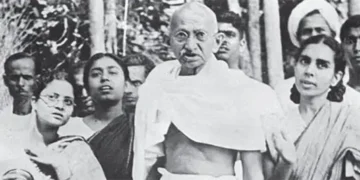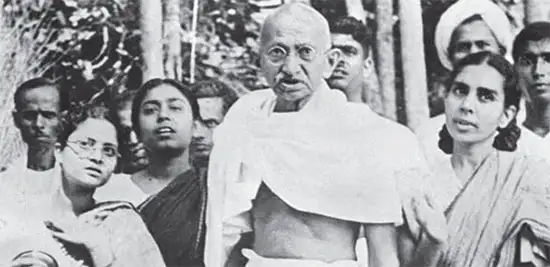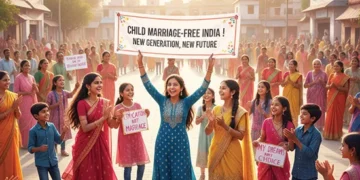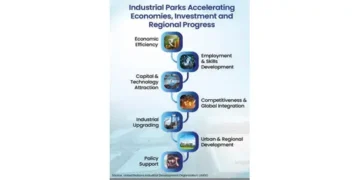Blitz Bureau
NEW DELHI: Gandhi’s philosophy of nonviolence remains crucial for tackling today’s challenges, including violent conflict, terrorism, economic inequalities, pandemics and climate change. UN Secretary-General António Guterres has noted that Gandhi’s vision forms key pillars of UN work, with his ideas foreshadowing the 2030 Agenda for Sustainable Development. Gandhi championed sanitation, maternal health, education, gender equality, hunger reduction, and development partnerships long before the SDGs were designed. Guterres emphasised that non-violence is a powerful tool for justice requiring courage and collective resolve. This enduring relevance is reflected in global policy frameworks and how Gandhi’s transformative journeys continue to be commemorated.
Service, compassion
During the G20 Summit in New Delhi, leaders from across G20 member nations and international organisations gathered at Mahatma Gandhi’s samadhi to pay tribute. In his public message. Following the visit, Prime Minister Narendra Modi called Gandhi “the beacon of peace, service, compassion and non-violence,” highlighting that the Mahatma’s timeless ideals continue to guide global aspirations for a harmonious and inclusive future. This act of homage wasn’t just ceremonial. It sent a strong, unified signal that amid competing geopolitical pressures and global challenges, there remains a place for Gandhi’s non-violent philosophy in international diplomacy.
Last year, Union Minister of Culture and Tourism Gajendra Singh Shekhawat inaugurated a special railway coach dedicated to Mahatma Gandhi at Gandhi Darshan, Rajghat, in New Delhi. The coach commemorates Mahatma Gandhi’s journey and his enduring legacy. The exhibit features a meticulously restored railway coach from the era of Mahatma Gandhi, symbolising his famous train journeys that were instrumental in his mission to unite the nation and advocate for justice and equality.
Transcendental vision>
After spending years in South Africa leading various political movements, Gandhi moved back to India and travelled across the Indian subcontinent in third-class railway compartments to improve his understanding of India and his vision for a united nation.
“The railways were more than just a means of transportation for Gandhi, they were a vehicle for understanding India in its entirety,” Vijay Goel, ViceChairman of Gandhi Darshan, said during the inauguration. The International Day of Non-Violence commemorates Gandhi’s transcendental vision and philosophies of non-violence, truth and social justice, which remain as relevant today as they were during his lifetime and are now internationally recognised as pivotal to the holistic and inclusive progress of humankind.
The Government of India as well as the world continue to be inspired by his political and social vision to ensure that societies globally are peaceful, just, and compassionate – today and in the future.


























